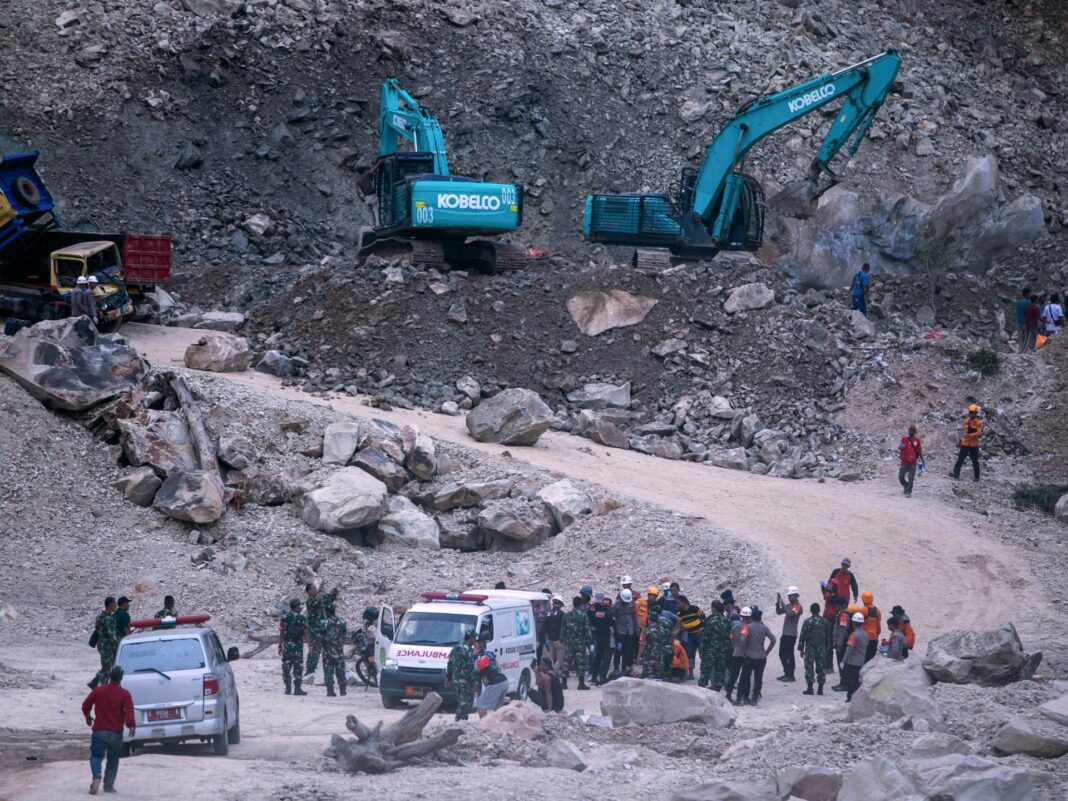Rescuers have already pulled a dozen injured people from the debris during a gruelling search effort at the site.
At least 10 people have been killed after a stone quarry collapsed in Indonesia’s West Java province, with the country’s disaster agency saying search efforts are ongoing to find missing people buried beneath the rubble.
The collapse took place early on Friday at Gunung Kuda mining site in Cirebon, West Java. Footage from the scene of the accident shows excavators moving large rocks and emergency workers placing victims in body bags in an ambulance.
Footage circulating online showed rescuers struggling to retrieve a body from the devastated area. Another showed people scrambling for safety as thick dust rose from a pile of rocks and soil that had collapsed.
Indonesia’s National Agency for Disaster Countermeasure (BNPB) said at least 10 people had been killed, but gave no estimate on the number of people missing. It said heavy machinery – including three excavators – were buried and rescue operations would continue throughout Saturday.
Rescue teams have already pulled a dozen injured people from the debris during a gruelling search effort, according to Cirebon district police chief, Sumarni, who uses a single name.
Sumarni said authorities are investigating the cause of the collapse, adding that the owner and quarry workers have been summoned for questioning. He said police, emergency personnel, soldiers and volunteers – supported by five excavators – are trying to locate any further trapped workers. Rescue efforts are being hampered by unstable soil, risking further slides, he added.
On his Instagram account, West Java governor Dedi Mulyadi said the site was “very dangerous” and did not “meet safety standards for workers”. The governor added that the mine was opened before he was elected and he “didn’t have any capacity to stop it”.
Mulyadi said he has taken action to close the Gunung Kuda mine and four others in West Java considered to be endangering lives and the environment.
Illegal mining operations are commonplace across Indonesia, providing a tenuous livelihood to low-wage workers while coming with a high risk of injury or death due to landslides, flooding and tunnel collapses. Much of the processing of sand, rock or gold ore also involves workers using highly toxic materials like mercury and cyanide with little or no protection.
In May, torrential rain triggered a landslide and floods near a small mine run by local residents in the Arfak Mountains in Indonesia’s West Papua province, killing at least six people.
Last year, a landslide also triggered by torrential rain struck an unauthorised gold mining operation on Indonesia’s Sumatra island, killing at least 15 people.


